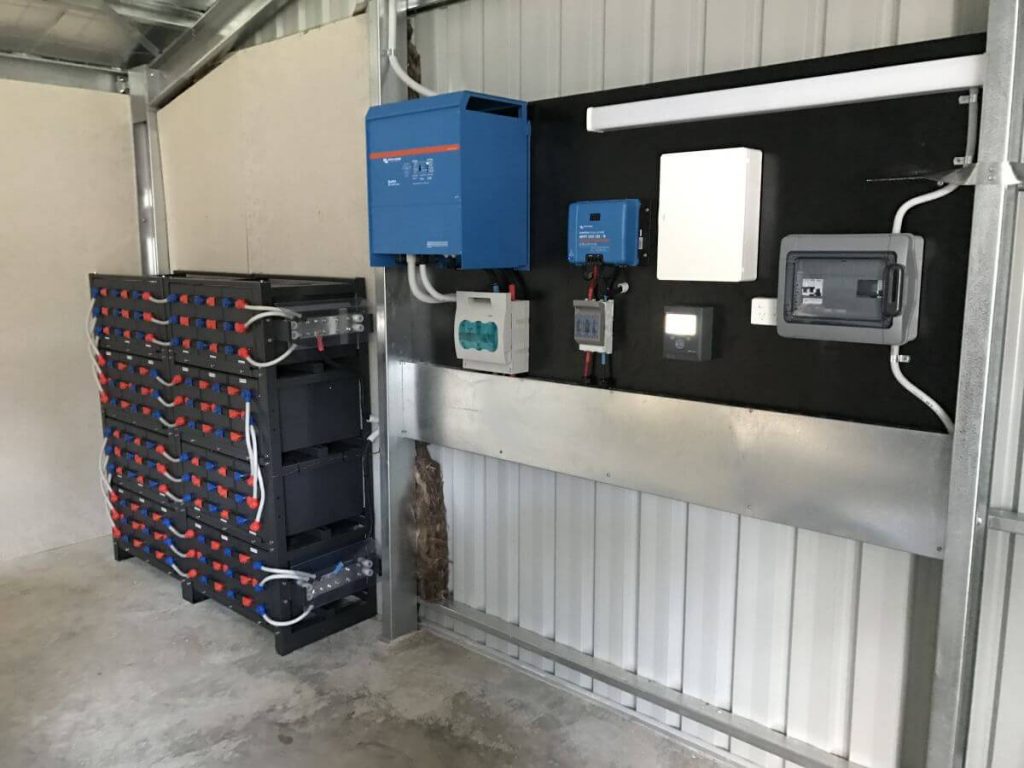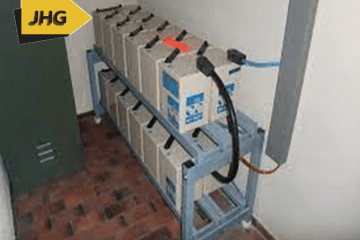Solar energy is a game-changer, offering a sustainable way to power homes and businesses while cutting electricity costs. However, to make the most of your solar investment, maintaining your solar batteries properly is crucial. These batteries store the energy harnessed from the sun, ensuring that power is available even when the sun isn’t shining. But like every other energy storage system, solar batteries have a lifespan that can be shortened or extended based on how they are used and maintained.
At Just HardRich Global Resources Limited, Nigeria’s choicest Electrical Power and Control Engineering Company, we understand the importance of reliable and long-lasting energy solutions. Our expertise in electrical power and solar energy solutions enables us to provide practical, effective strategies to ensure that your solar battery system serves you efficiently for years.
This article will explore the key factors affecting solar battery life expectancy and provide six practical tips to help you extend the lifespan of your solar battery, ensuring optimal performance and maximum returns on your solar investment.
What Affects Solar Battery Life Expectancy?
The lifespan of a solar battery is influenced by several critical factors. Understanding these elements will help you take proactive steps to extend your battery’s longevity and improve efficiency.
1. Frequency of Charge and Discharge Cycles
Solar batteries function through charge and discharge cycles, meaning that the more they are used, the faster they wear out. Each time a battery is charged and then discharged, it counts as one cycle. Over time, repeated cycling reduces the battery’s storage capacity, affecting its lifespan.
A lithium-ion solar battery, for instance, may last 4,000 to 6,000 cycles, while lead-acid batteries typically last between 300 and 1,500 cycles before their capacity significantly diminishes.
Pro Tip: To extend the lifespan of your solar battery, avoid excessive discharge and follow best practices for battery maintenance.
2. Operating Temperature
Nigeria’s tropical climate presents unique challenges for solar battery systems. High temperatures can accelerate chemical reactions inside the battery, causing faster degradation. While a moderate increase in temperature may improve battery performance in the short term, prolonged exposure to extreme heat significantly reduces lifespan.
Solution:
- Keep solar batteries in a well-ventilated, shaded location to reduce heat buildup.
- If necessary, install cooling systems, such as fans or air conditioning, to maintain optimal temperatures.
3. Type of Solar Battery Used
The battery chemistry plays a vital role in its longevity. The two most common types of solar batteries are:
- Lithium-Ion Batteries – These have a higher cycle life (4,000–6,000 cycles) and better efficiency compared to lead-acid batteries.
- Lead-Acid Batteries – These are cheaper upfront but have shorter lifespans (300–1,500 cycles) and require more frequent maintenance.
Choosing the Right Battery:
At Just HardRich Global Resources Limited, we help clients select high-quality, durable solar batteries tailored to their specific energy needs. Investing in a premium lithium-ion battery can provide better long-term savings and efficiency.
6 Tips to Extend Your Solar Battery’s Life Expectancy
To maximize your solar battery’s lifespan and efficiency, follow these expert-recommended strategies:
1) Follow the Manufacturer’s Guidelines
Every solar battery comes with a manufacturer’s manual detailing the ideal operating conditions, charging parameters, and maintenance schedules. Ignoring these guidelines can lead to:
1. Reduced efficiency
2. Premature battery failure
3. Higher replacement costs
Solution:
- Carefully read the manufacturer’s manual and follow instructions for proper charging and storage.
- Schedule routine maintenance as recommended by the manufacturer.
- For professional assistance, rely on experts like Just HardRich Global Resources Limited to handle your solar power system maintenance.
2) Monitor and Maintain Proper Charge Levels
Solar batteries function best when their charge levels are carefully monitored. The two key terms to understand are:
1. State of Charge (SoC): The battery’s current charge level relative to its total capacity.
2. Depth of Discharge (DoD): How much of the battery’s stored energy is used before recharging.
Why It Matters:
- Overcharging or deep discharging can degrade battery health over time.
- Some batteries, especially lithium-ion types, have built-in Battery Management Systems (BMS) to regulate charging cycles.
Best Practices:
✔️ Keep the State of Charge (SoC) between 20% and 80% for longevity.
✔️ Avoid fully discharging lead-acid batteries, as this significantly reduces their lifespan.
✔️ Install smart solar battery monitoring systems to track charge levels and optimize performance.
3) Regulate Operating Temperature
High temperatures can drastically shorten a solar battery’s lifespan, especially in Nigeria’s hot climate.
How to Maintain Safe Temperature Levels:
1. Keep batteries in a cool, well-ventilated area.
2. Use temperature-controlled enclosures if ambient heat is excessive.
3. If possible, invest in battery cooling systems for large solar installations.
4) Perform Regular Cleaning and Maintenance
Proper maintenance ensures that your battery operates efficiently for the longest time possible.
Essential Maintenance Tips:
✅ Inspect battery terminals for corrosion or dust buildup and clean them regularly.
✅ Check battery casing for physical damage.
✅ Keep connections tight and secure to prevent energy loss.
✅ Schedule annual professional inspections with Just HardRich Global Resources Limited for in-depth system analysis.
5) Store Batteries Properly When Not in Use
If you’re not using your solar battery for an extended period, proper storage is crucial.
Best Storage Practices:
- Keep the battery at 50% charge before storing (check manufacturer’s recommendation).
- Store in a cool, dry location to prevent exposure to humidity.
- Avoid stacking batteries in cramped spaces to maintain proper ventilation.
6) Update Your Battery Management System (BMS)
A Battery Management System (BMS) helps monitor and regulate battery health, preventing overcharging, overheating, or deep discharging.
Why Updating Your BMS is Important:
- Enhances charging efficiency
- Prevents battery imbalances
- Extends lifespan and performance
At Just HardRich Global Resources Limited, we utilize advanced BMS technology to help clients monitor their solar battery systems remotely and optimize energy usage for peak efficiency.
Conclusion
Investing in solar battery storage is a smart choice, but without proper maintenance, you may face premature degradation, reduced efficiency, and high replacement costs. By implementing the six expert tips outlined above, you can maximize your battery’s lifespan, improve performance, and reduce long-term expenses.
At Just HardRich Global Resources Limited, we are dedicated to delivering top-tier electrical power and control engineering solutions in Nigeria. Whether you need solar battery maintenance, system optimization, or professional consultation, we are your trusted partner in renewable energy solutions.
Need help with your solar power system? Contact Just HardRich Global Resources Limited today for expert advice and services!




